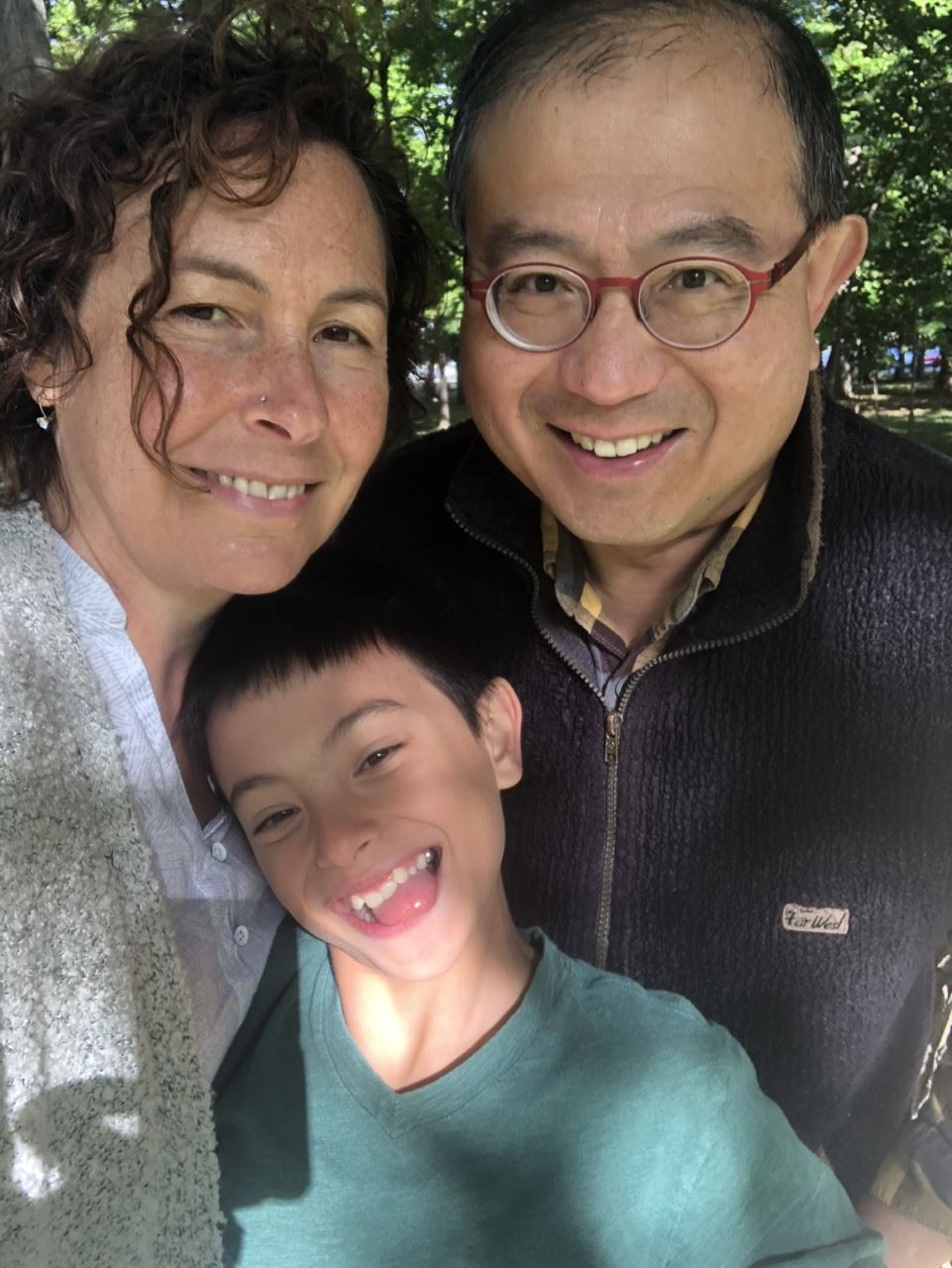 (Victoria, BC, April 6, 2023) — After a routine health exam, Dr. Kong Khoo, a respected oncologist at BC Cancer, was diagnosed with stage I lung cancer in March 2020. Stunned by the dreadful news, Dr. Khoo would soon discover that the culprit was long-term exposure to high radon levels in his home.
(Victoria, BC, April 6, 2023) — After a routine health exam, Dr. Kong Khoo, a respected oncologist at BC Cancer, was diagnosed with stage I lung cancer in March 2020. Stunned by the dreadful news, Dr. Khoo would soon discover that the culprit was long-term exposure to high radon levels in his home.
Radon, a naturally occurring radioactivegas that comes from the breakdown of uranium in soil and rock, is the number one cause of lung cancer in non-smokers and the second leading cause of lung cancer in smokers.
Because radon is found in every building that contacts the ground, the only way to detect whether the levels in your home are dangerous is to test.
Following his cancer diagnosis, Dr. Khoo immediately tested his home of 25 years. As he suspected, the radon levels were significantly higher than Health Canada’s radon guidelinelevel of 200 Bq/m3.
“The irony of the situation isn’t lost on me,” admits Dr. Khoo, who sees first-hand the devastating effects of lung cancer on his patients. “Lung cancer is one of the most preventable types of cancers. I should have tested and acted years ago to protect myself and my family,” he says.
Once he discovered that the levels of radon were above the guideline, Dr. Khoo took steps to reduce the levels through a process called radon mitigation.
“Testing your home for radon is simple and affordable,” says Dr. Anne-Marie Nicol, Associate Professor, Health Sciences, Simon Fraser University. “If your home is above the guideline, it is really important to take that next step and lower the radon level. Reducing exposure is what reduces your risk of developing lung cancer.”
Dr. Khoo is grateful to have caught his cancer early and have it successfully removed with surgery. Eager to prevent others from suffering and to save lives, Dr. Khoo is sharing his story and raising awareness about the life-threatening risks of radon.
“I wouldn’t wish this diagnosis on anyone,” says Dr. Khoo. “I urge every homeowner to protect their family’s health by checking for radon and taking any required mitigation measures.”
Dr. Khoo will be speaking at the 2023 Canadian Association of Radon Scientists and Technologists (CARST) Radon Conference, taking place at the Victoria Conference Centre on April 13, 2023, starting at 8:30 a.m.
“We are so pleased to have Dr. Khoo share his story and help raise awareness about radon,” says Pam Warkentin, Executive Director of CARST. “With more than 3,000 people dying each year from lung cancer in Canada, we need to make significantly more progress in getting the word out.”
About the 2023 CARST Radon Conference
Stakeholders from across Canada, the US, and Europe will be meeting at the 12th annual CARST Radon Conference, Building Today for Healthy Tomorrows, to discuss the latest research and changes to building codes and policies about radon. The conference will be held at the Victoria Conference Centre April 12–15; in-person for the first time in three years.
About Radon
Radon is a radioactivegas that comes from the breakdown of uranium in soil and rock. It is invisible, odourless and tasteless. When it is released from the ground into the outdoor air, radon is diluted and is not a health concern. However, in indoor environments, radon can often be found at higher levels. With new construction being more airtight and many people taking measures to increase the air tightness of their homes, radon levels are continuing to increase.
Long-term exposure to high levels of radon increases the risk of lung cancer. According to Health Canada, 16% of lung cancer deaths can be traced to radon exposure.
About CARST
CARST is a Canadian not-for-profit with the mission of bringing individuals and organizations who are driven to help Canadians reduce their radon exposure and prevent lung cancer from radon. CARST provides members with radon-relevant resources; opportunities to learn more about radon research, standards and best practices; and a place to connect with other stakeholders across the country.
-30-
For more information or to schedule an interview with Dr. Khoo, Medical Oncologist, BC Cancer-Kelowna, or Pam Warkentin, CARST Executive Director:
Victoria Pickering
(514) 771-2837
victoria@pickeringpr.com
Sources:
BC Cancer
Canadian Cancer Association
Canadian Cancer Statistics: A 2022 special report on the prevalence of cancer
Health Canada